Cardiovascular diseases (CVDs) are a group of disorders of heart and blood vessels. They include coronary heart disease, cerebrovascular disease, congenital heart disease, rheumatic heart disease, deep vein thrombosis, pulmonary embolism etc. Overall, CVDs are the leading cause of death globally. In 2019, 18.6 million people died from CVDs, 58% of which occurred in Asia. Total CVD-caused deaths account for 35% of total deaths in Asia. This article will look at 5 Asian icons who died of cardiovascular diseases.
1. Mao Zedong (1893-1976)
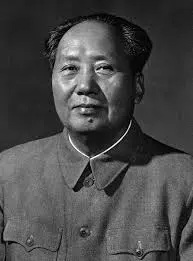
Figure 1. Mao Zedong
Mao Zedong was the first President of the People’s Republic of China serving from 1st October 1949 until his death in 1976. He was a Chinese communist revolutionary and was the founding father of the People’s Republic of China, serving as Chairman of the Communist Party of China from 1943 to 1976. His theories, military strategies and political policies are collectively known as Maoism.
Mao’s health declined in his last years. In 1976, he suffered two major heart attacks, one in March and another in July, then a third on 5th September, which eventually took his life 4 days later on 16th September.
Heart attack, sometimes also known as myocardial infarction, occurs when one or multiple arteries supplying blood to the heart muscle are blocked, resulting in reduced or a lack of blood supply to heart tissues. Patients usually experience extreme pain over the chest, spreading to their jaws, left shoulder or arm. Other common symptoms include shortness of breath, nausea, heartburn and fatigue. If you have the above symptoms, contact emergency services immediately. A minor delay in treatment could result in death.
2. Norodom Sihanouk (1922-2012)
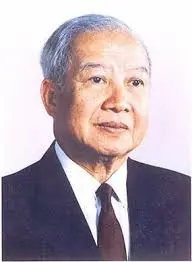
Figure 2. Norodom Sihanouk
Norodom Sihanouk was a Cambodian statesman and royal who led Cambodia in various positions periodically from 1941 to 2004. Notably, he was the King of Cambodia from 1941 to 1955 and from 1993 to 2004; Chief of State of Cambodia from 1960 to 1970. In Cambodia, he is known as Samdech Euv, the King Father.
His health deteriorated in his last years. On 15th October 2012, he died of a heart attack in Beijing, China. The Cambodian government announced an official mourning period of seven days and 1.2 million people lined the streets from the airport to the royal palace to witness the return of his cortège.
3. Godfrey Gao (1984-2019)
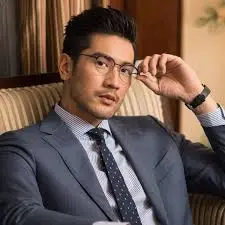
Figure 3. Godfrey Gao
Godfrey Gao, or Gao Yixiang, was a Chinese-Canadian model and actor. Described as Asia’s first male supermodel, he was the first male Asian model to appear in a campaign for Louis Vuitton. As an actor, he was known for his role as Magnus Bane in the 2013 film adaptation of The Mortal Instruments: City of Bones.
On 27th November 2019, he collapsed while filming a sports reality television series broadcast on Zhejiang Television. He was taken to hospital and was pronounced dead 3 hours later from cardiac arrest.
Cardiac arrest is an emergency medical condition where the heart suddenly stops pumping. It is most likely due to a problem with the heart’s electrical regulator system. Patients with cardiac arrest usually collapse to the ground without any prodrome and suddenly lose consciousness. An automated external defibrillator (AED) with cardiopulmonary resuscitation (CPR) performed on-site could greatly increase a patient’s chance of survival. For bystanders, please call for an ambulance immediately.
4. Kim Jong-il (1941-2011)
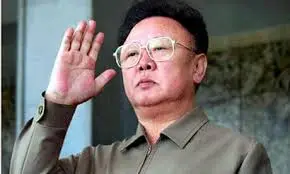
Figure 4. Kim Jong-il
Kim Jong-il was a North Korean politician who was the second General Secretary of the Workers’ Party of Korea, in effect the supreme leader of North Korea from 1994 to 2011. In his tenure, he adopted a ‘Military First’ policy to strengthen the country against potential US invasion and reinforced its defence position. Meanwhile, the policy has resulted in positive economic growth for the country since 1996 amid continuous natural disasters and the aftermath of the Soviet collapse.
On 17th December 2011, while travelling by train to an area outside Pyongyang, the nation’s capital, he died of a suspected heart attack.
5. Dev Anand (1923-2011)
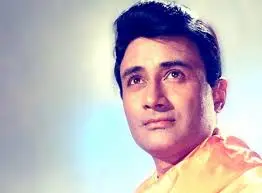
Figure 5. Dev Anand
Dharamdev Pishorimal Anand, better known as Dev Anand, was an Indian film actor, director and producer known for his work in Hindi cinema. In his 60 years of working, he directed 19 films and produced 35 films. In 2000, he was awarded the Indo-American Association ‘Star of the Millennium’ Award in Silicon Valley. The same year, he was honoured with an Award from the hands of the First Lady of the United States, Hillary Clinton, for his ‘Outstanding Contribution to Indian Cinema’. He was the recipient of the 2001 Padma Bhushan (India’s third highest civilian award from the Government of India), and the 2005 Sony Gold Award.
On 3rd December 2011, he died in his hotel room of cardiac arrest in London during a medical check-up trip.
